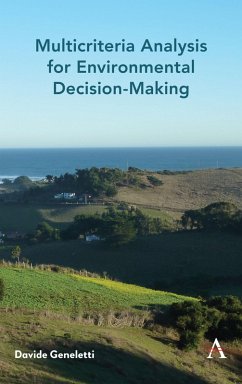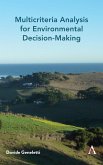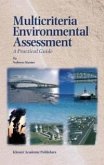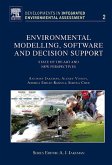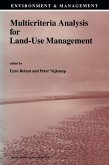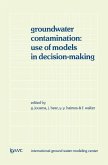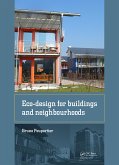The aim of this book is to provide an overview of the principles of multicriteria analysis (MCA), and a series of case studies that illustrate its application to a variety of environmental decision-making problems, ranging from the siting of facilities with critical environmental effects to Natural Park planning, and from the prioritisation of environmental restoration interventions to the assessment of the impact of tourism infrastructures.
Chapter 1 introduces the principles of MCA and describes the main stages of a generalized MCA process, by providing details and references to support the implementation of each stage. Chapter 2 reviews the application of MCA for a specific field of environmental decision-making: nature conservation. The objective is twofold: to take stock of past experiences by investigating how key stages of the MCA process have been performed, and to compare findings with best practices in order to provide recommendations for successful applications.
In Chapter 3, a case study about landfill site selection is presented. The method is based on the combination of stakeholder analysis and spatial MCA to first design possible sites for a landfill, and then rank them according to their suitability. Chapter 4 presents an application of MCA to support protected area planning. The case study illustrates the process of proposing a zoning scheme for a natural park, by combining MCA and multiobjective evaluation. Chapter 5 addresses the problem of forest landscapes restoration. In this case study, spatial and non-spatial MCA are applied to first identify forest reforestation priority areas, and then design landscape-scale reforestation options aimed at improving both ecosystem quality and human living conditions. [NP] The last case study, described in Chapter 6, shows how MCA can be combined with GIS-based indicators to assess and compare the environmental impacts of proposed ski areas in a mountain watershed. Finally, Chapter 7 provides some conclusions about the potential of MCA to support environmental decision-making, and about the set of skills required for successful MCA applications.
Chapter 1 introduces the principles of MCA and describes the main stages of a generalized MCA process, by providing details and references to support the implementation of each stage. Chapter 2 reviews the application of MCA for a specific field of environmental decision-making: nature conservation. The objective is twofold: to take stock of past experiences by investigating how key stages of the MCA process have been performed, and to compare findings with best practices in order to provide recommendations for successful applications.
In Chapter 3, a case study about landfill site selection is presented. The method is based on the combination of stakeholder analysis and spatial MCA to first design possible sites for a landfill, and then rank them according to their suitability. Chapter 4 presents an application of MCA to support protected area planning. The case study illustrates the process of proposing a zoning scheme for a natural park, by combining MCA and multiobjective evaluation. Chapter 5 addresses the problem of forest landscapes restoration. In this case study, spatial and non-spatial MCA are applied to first identify forest reforestation priority areas, and then design landscape-scale reforestation options aimed at improving both ecosystem quality and human living conditions. [NP] The last case study, described in Chapter 6, shows how MCA can be combined with GIS-based indicators to assess and compare the environmental impacts of proposed ski areas in a mountain watershed. Finally, Chapter 7 provides some conclusions about the potential of MCA to support environmental decision-making, and about the set of skills required for successful MCA applications.
Dieser Download kann aus rechtlichen Gründen nur mit Rechnungsadresse in A, D ausgeliefert werden.

